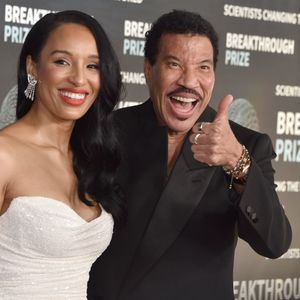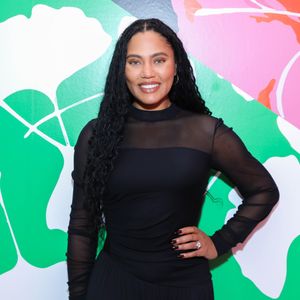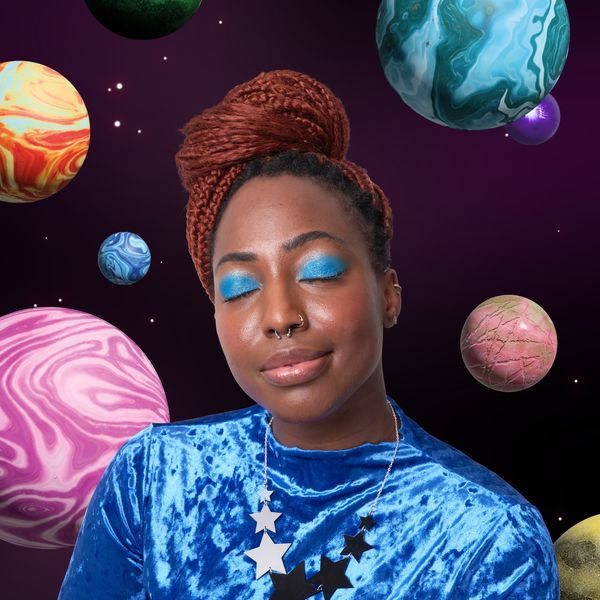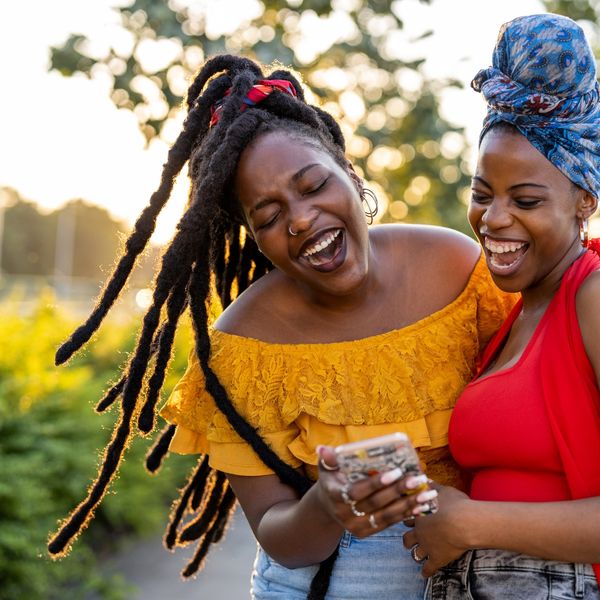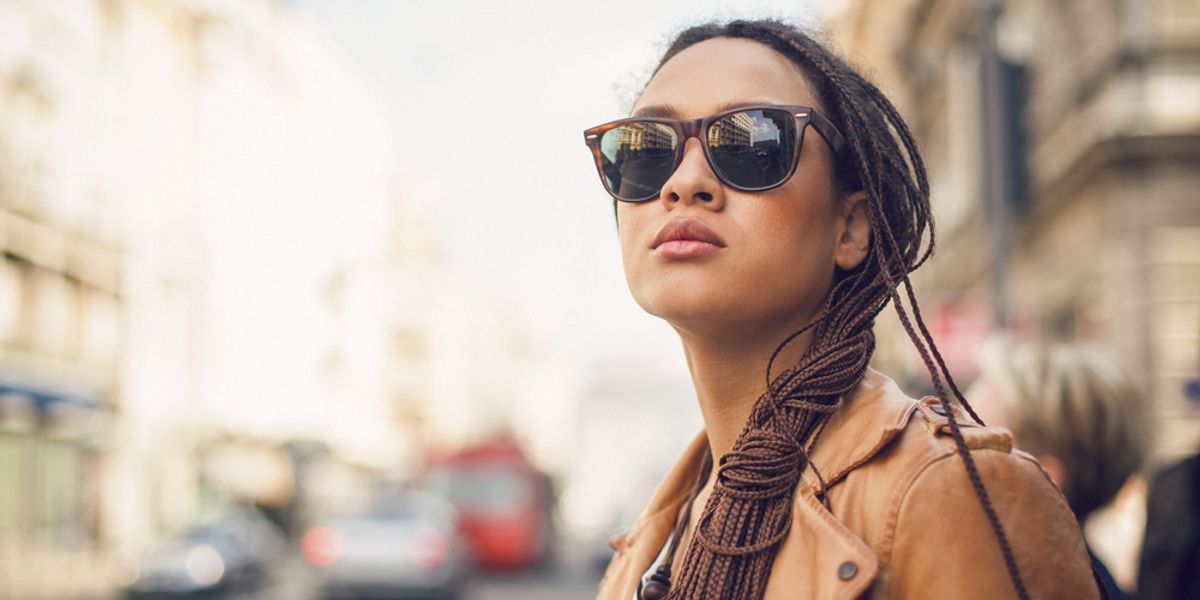
8 Of The Best Cities In America For Black Women
As a black woman living in a country with a black woman Vice President for the first time in history, you would think that navigating the country and living within the confines of our complete selves would be an unchallenged occurrence. But in reality, it's just not. Instead, we live in an exclusive society that only we marvel in; a society where we know what that look from a fellow sis means when coworkers begin asking about our hair, or relating to anyone of us being told that we're "too aggressive" for speaking up for ourselves.
Through our work, entrepreneurship, political participation, and more, we're creating opportunities for ourselves and families and improving the U.S. economy and society, and yet, there aren't many places that allow us to step outside of our self-conjured exclusivity, and simply...exist. And maybe there never will be. But for now, there are a few cities that allow us to wear our fros without question on Monday, and a 36-inch body wave, without even thinking twice about it, on Wednesday.
So, in honor of being a black woman, here's a list of 8 of the best cities in America for black women:
(Any data stated was pulled from a 2020 Bloomberg CityLab study)
Washington D.C.

Shutterstock
Overall, hands down, and without a doubt, the best place for black women to live in America is Washington D.C. It was no coincidence that 91% of voting black women voted for Joe Biden, and 92% of votes cast in D.C. went to Joe Biden.
We're a plethora there.
The women are educated, hold stable income statuses and accomplishments, and mean business, nothing less. Most of this is attributed to that fact that D.C. is home to numerous universities and hospitals, including John Hopkins, Howard University, and George Washington, and have a strong focus on military posts and public sector institutions. According to Bloomberg CityLab, the public sector in D.C. is key, as the government is the second-largest employer of black women overall (and the largest for black men), and the DMV region has the densest concentration of federal government jobs in the nation.
Add in the local government workforce, and it all makes sense. Oh yeah, and the fact that D.C.'s mayor is a black woman.
Baltimore

Shutterstock
Baltimore is almost identical to Washington D.C., as they fall into most of the same categories, being that is also in the DMV and most occupants live in either interchangeably. Baltimore falls short in health, a reflection of the city's extraordinarily high rates of maternal and infant mortality, cancer, domestic violence, police violence, and poverty, but they recently elected a new mayor who has the task of getting these under control.
Full of artists, entrepreneurs, poets, makers, politicians, authors, community organizers, teachers, and activists, Baltimore also ranks high for black women due to accessibility of the same amenities as D.C. But you can expect those distinguishable thick northern accents with a little southern drawl ("Bal-da-more", "tew") to go right along with it.Raleigh

Shutterstock
No state is better represented among the top metros for black women than North Carolina, as Raleigh, Greensboro, and Charlotte have highly ranked respectively. They may not have a huge market for government sector jobs like the DMV, but Raleigh has a plethora of resources for jobs in the private sector, as they represent one of the top regions for African-American employment in general. Hallelu.
A common trend, is the variety of higher education institutions (North Carolina is home to 12 historically black colleges and universities, tied with Alabama for most HBCUs in one state) which have ultimately spurred the tech and innovation markets to shape the region for much of the 21st century.
Additionally, Raleigh only comes second to Washington D.C. in terms of an economical livability index.
Houston

Shutterstock
There are 1.8 million black women who currently reside in Houston, in comparison to 1.7 million men. It's a great place for young professionals, and it's one of the largest cities in the US, with no income tax, and a label as 2019's most diverse city in the US. The economy is booming, and the cost-of-living is cheap. Houston single-handedly dismisses the narrative that successful and important entrepreneurs have to live in much larger cities such as NYC or Los Angeles.
It's basically the perfect place for experiencing a major city, while being fiscally responsible.
(*whispers* and Bey is from there)
Atlanta

Shutterstock
Thank God for Mayor Keisha Lance Bottoms.
Listen, like any other city, Atlanta certainly has its issues. But these issues could be exponentially greater if it weren't for her. Mayor Bottoms has taken Atlanta to new heights on a national scale, has unapologetically enforced her policies, and has showed up time after time ready to represent for black women, mothers, and professionals, Elected in 2017, Lance Bottoms has gained national recognition for her leadership of Atlanta, she has also become an early and important ally to Joe Biden, and has frequently received praise for being outspoken in criticizing state and national leaders during the nonstop hindrance of black progression during the pandemic as she famously stated, "… you're not going to out-concern me and out-care about where we are in America."
Queen.
Because of this, Atlanta, which has always been a safe haven for black women, has now catapulted and evolved even more in the forefront of being one of the best cities in America for black women. Atlanta is the number one metro area for annual black migration, due to its long known reputation as a center of black wealth, higher education, political power and culture. Some of the greatest and best to ever do it, have emerged from Atlanta (an accolade usually upheld by much larger cities). And its longstanding history of black empowerment, from the Civil War, to MLK marches, has placed its progressive agenda into a realm at which its history emerges full circle.
Dallas

Shutterstock
Another high-ranking city on the annual migration list is Dallas, TX, drawing a yearly average of 7,678 new residents. For the most part, the South is paramount for black women's chances at upward mobility, and many women are taking notice. Dallas has a great mix of hustle and bustle, and quiet suburban life and although it is a major city, the cost-of-living is incomparable to other large cities.
In fact, the cost of living is lower than the national average.
Hot enough to highlight your melanin, and diverse enough to enjoy it, Dallas is a safe bet for your well-being.
Seattle

Shutterstock
Seattle is another underdog for black sustainability, as families and black women are thriving economically and socially. With a growing black and Caribbean population, a low unemployment rate, and a general liberal perspective to political issues, Seattle has become a place to settle down. What's most interesting is they too have a long history of marching and civil rights, although somewhat quiet. It's not a "black mecca" and the black community may not be as loud and boisterous as places such as Atlanta or Baltimore, but Seattle is a great place to regroup and start over.
If you crave a sense of community, don't plan to stay too long. Come for the self-care.
Boston

Shutterstock
Believe it or not, this decade, Massachusetts had the fastest growing black population in the northeast by a lot, primarily in Boston. They have an above average black birth rate, and one of the fastest rising black incomes. Black women who live in Boston are likely to be high wage-earners (based on the higher overall income of citizens due to the many well-paying tech and bio-med jobs), be healthier (due to high-performing hospitals and also because they understand that better educated people who earn more money, are also likely to be healthier on average), and higher educational backgrounds (because these industries attract, recruit, and outsource for candidates).
But there is black population growth, and you will have no problem finding a cohort of black people to live, work and party with. If you want to hang out with just HBCU college grads, they're there. When you want to ski with Black skiers, they're there. If you are an accountant, an engineer, a black social worker, a government employee, an educator and you want to be with these black people, they are there and ready to network with you.
Are you a member of our insiders squad? Join us in the xoTribe Members Community today!
Feature image by Shutterstock
- Job Relocation Tips For Women - xoNecole: Women's Interest, Love ... ›
- The Top 5 Black Friendly European Cities You Should Travel To ... ›
- Top Worst Countries For Black Tourists - xoNecole: Women's Interest, Love, Wellness, Beauty ›
- Best and Worst Countries For Black Women Travelers - xoNecole: Women's Interest, Love, Wellness, Beauty ›
- The Best Cities For Millennials In 2021 - xoNecole: Women's Interest, Love, Wellness, Beauty ›
- Best and Worst Countries For Black Women Travelers - xoNecole: Women's Interest, Love, Wellness, Beauty ›
- Best Countries For Black Women To Solo Travel - xoNecole ›
- Movin' On Up: The 10 Best Cities For Single Black Women ... ›
- The top cities where African-Americans are doing the best ›
- Study analyzed the best and worst U.S. cities for Black women to live ... ›
- Best Cities For Black Women To Operate A Business ›
- Data Is In: These Are The Best Cities For Black Women - Essence ›
- The Best And Worst Cities For Black Women To Relocate - Travel ... ›
- The Best and Worst Cities for Black Women - Bloomberg ›
Charmin Michelle is a southern native and creative spirit who works as a content marketer and events manager in Chicago. She enjoys traveling, #SummertimeChi, and the journey of mastering womanhood. Connect with her on Instagram @charminmichelle.
ItGirl 100 Honors Black Women Who Create Culture & Put On For Their Cities
As they say, create the change you want to see in this world, besties. That’s why xoNecole linked up with Hyundai for the inaugural ItGirl 100 List, a celebration of 100 Genzennial women who aren’t afraid to pull up their own seats to the table. Across regions and industries, these women embody the essence of discovering self-value through purpose, honey! They're fierce, they’re ultra-creative, and we know they make their cities proud.
VIEW THE FULL ITGIRL 100 LIST HERE.
Don’t forget to also check out the ItGirl Directory, featuring 50 Black-woman-owned marketing and branding agencies, photographers and videographers, publicists, and more.
THE ITGIRL MEMO

I. An ItGirl puts on for her city and masters her self-worth through purpose.
II. An ItGirl celebrates all the things that make her unique.
III. An ItGirl empowers others to become the best versions of themselves.
IV. An ItGirl leads by example, inspiring others through her actions and integrity.
V. An ItGirl paves the way for authenticity and diversity in all aspects of life.
VI. An ItGirl uses the power of her voice to advocate for positive change in the world.
Let’s make things inbox official! Sign up for the xoNecole newsletter for daily love, wellness, career, and exclusive content delivered straight to your inbox.
These 11 Married Couples Share Their Keys To Long-Term Marital Success
The late actor Audrey Hepburn once said something that I think a lot of married couples who have at least 10 years under their belt will agree with: “If I get married, I want to be very married.” In my mind, this means very committed, very complementary, and very willing to go the distance — otherwise, what’s the point?
Really, what’s the point?
Thing is, with the divorce rate still being higher than it ever should be (for the record, a husband is not a boyfriend, and a wife is not a girlfriend; a marriage is serious business, y’all) and acting married being praised (or at least acknowledged) more than actually being married seems to be — folks who 1) are married and are looking for some hacks that will help with relational longevity or 2) want to be married someday and want insight on how to make their future marriage last are constantly seeking truly beneficial material.
Can you Google articles with random bullet points? Sure. And I’m not discouraging it. Every little bit of wisdom that you can pull, I fully support. However, the reason why I like to do articles like this one from time to time is there is something to be said from hearing real talk from multiple sources on the same topic who have some solid wisdom and knowledge on a particular topic.
Today? 11 married couples who were willing to talk about how they’ve been able to make it to several wedding anniversaries with a smile on their face and no regrets for choosing who they chose. Let’s all sit at their feet for just a moment.
*Middle names are always used in my content that’s like this so that people can speak freely*

Getty Images
1. Kyle and Adrienne. Married 12 Years.
Kyle: “Some of your readers aren’t going to want to hear this but it’s worked for my marriage: people need to lower their expectations sometimes; I mean, men and women. We go into marriage with stuff that movies told us, social media told us, friends who are always single told us about what we should expect from someone, and then want to fault the person when they’re not what we made up in our head. Everyone should have standards but if you’re expecting your spouse to be some living version of a fairy tale character, you’re going to be disappointed almost every day of your life. Drop those expectations some and watch your relationship be a lot less stressful.”
Adrienne: “Talk to people who respect your man about your marriage. I’ve never believed that you shouldn’t ever go to anyone when you need some support. Even the Bible says that there is safety in wise counsel [Proverbs 11:4]. Too many women talk to women who don’t respect men, in general, let alone their husbands, and so that’s where things go left. Sometimes, you need an ‘outside in’ perspective. But if that woman is always taking shots at men, doesn’t respect marriage, or isn’t someone who holds your man in high regard, don’t ask her for advice. Really, you should ask yourself why you’re friends with her at all.”
Shellie here: I’m big on engaged and married couples having a “village” of sorts for their relationship, too. Check out “Why Every Engaged Couple Needs A 'Marriage Registry'” to get a good idea of what I mean.
2. Levi and Paulette. Married for 15 Years.
Levi: “Some of you have probably heard of the 7-7-7 rule. It’s where couples go on a date every seven days, have a weekend getaway every seven weeks, and go on a romantic trip of some sort every seven months. My wife and I do the 2-2-2 rule instead because sometimes our schedule and budget make ‘7’ difficult. It has gotten easier since Shellie told us about the sex jar. Bottom line, if you’re waiting for time to just open up to be with your spouse, that ain’t gonna happen. Schedule intimacy, including sex. Prioritizing it is better than saying you’re gonna be spontaneous and…never are.”
Paulette: “Initiate sex, dammit. When Shellie told us that men initiate sex most of the time, and then I thought about how often I used to push my husband away whenever he did it — I never really thought about how that made him feel until I put myself in his shoes. We’ve got to stop having all of this understanding for why women cheat when it comes to them not feeling desired or not getting attention when we’re the same way to our husbands. Your marriage isn’t ‘Young and the Restless’, where you’re just supposed to wait for your man to make the move. If you want to feel wanted, do the same thing for him.”
Shellie here: What’s a sex jar, you ask? You can read more about it via “5 Reasons Why Every Married Couple Needs A Sex Jar.”
3. Matthew and Gaia. Married for 17 Years.
Matthew: “Reenact some of your favorite times together. My wife and I do that semi-often. We’ll go back to where we had our first date, or we’ll go back to the hotel where we had some of the best sex before. Bringing back memories of when you felt the best together can give you the motivation to stay together to create some new memories to ‘play out’ later on.”
Gaia: “If you want to ‘mom your husband,’ you need to have kids — or at least get a dog! I didn’t realize how bossy I was until I got married. It’s because I saw my mom be that way with my dad. In my eyes, I thought that’s what love looked like until I watched how my in-laws were. They don’t try to change each other, and they definitely don’t make any demands. They’re very polite. I think a lot of married people are rude to their partner. Don’t be that.”

Getty Images
4. Joseph and Carletta. Married for 10 Years.
Joseph: “Go to therapy for your childhood. I’m dead serious. No one is going to show you yourself like your wife will, and I realized that a lot of my hang-ups came from unhealed childhood stuff. It’s hard to be an adult in your marriage when you’re still emotionally a kid in a lot of ways. If you’re at the point where you think therapy is needed, go alone and deal with your childhood first. It did miracles for me and mine.”
"No one is going to show you yourself like your wife will, and I realized that a lot of my hang-ups came from unhealed childhood stuff. It’s hard to be an adult in your marriage when you’re still emotionally a kid in a lot of ways."
Carletta: “Meditate together once a day. Even if it’s just for 5-10 minutes, you need to carve out a moment to be mindful, focus on each other, and slow the world down. [Joseph and I] have been doing it for a couple of years now; it’s totally changed the way we communicate. Meditation reminds us to put each other first; that if we’re focused on each other, we can take on…whatever.”
5. Zeke and Rachelle. Married for 12 Years.
Zeke: “An argument is not a fight and a debate is not an argument. Learn that and you’re home-free. That’s all I got.”
Rachelle: “That advice that you just got? That sums up what it’s like to live with my husband. He’s very cut-and-dry, direct, and not wordy. That used to bug the hell out of me until I realized how wordy I was and then accepted that I wouldn’t want ‘two of me’ in the house [LOL]. He’s right. You can have a difference of opinion, and it be a debate. You can not find a middle ground on something and it turns into an argument. Neither of those is a red flag. It just comes with being with someone who is as much of an individual as you are.”
6. Taurus and Madison. Married for 22 Years.
Taurus: “Be prepared for your partner to change — not a couple of times, quite a bit. And when they change, that alters the relationship because now it’s not the person you stood with on your wedding day; it’s someone else. People get divorced so much because they are inflexible; they expect their spouse to never switch up and that’s just not how life is. If you’re rigid, controlling, or don’t know how to adjust, you don’t need to marry anybody. You’re gonna be miserable, and so will they.”
Madison: “Pray before sex. Before my husband and I got married, we had quite a bit of sexual history that caused us to do some comparing, and that led to resentment. In marriage, we had to adjust to how it’s more than just what we’re getting from another person. Married sex comes with so much more spirituality and responsibility. Prayer before sex reminds us to see it from a spiritual lens — and that makes the experience more intense and sacred. It might sound weird at first. Just try it. I don’t think you’ll regret it at all.”
"Married sex comes with so much more spirituality and responsibility. Prayer before sex reminds us to see it from a spiritual lens — and that makes the experience more intense and sacred."

Getty Images
7. Karl and LaTasha. Married for 9 Years.
Karl: “Check in with your partner twice a day. In the morning before leaving the house and at night before going to sleep. If you work outside of the home, a lot can happen during the course of one day, so you shouldn’t assume that the person you left in the morning is who you are coming home to. I don’t mean sharing each other’s schedules or to-do lists. I mean, asking your spouse, ‘How are you doing? How are you really doing?’. It’s a smart way to take note of their mood and needs so that you are never blindsided.”
LaTasha: “Give each other some privacy. I have never been the kind of woman to go through a man’s phone, and I won’t start. If you think that you have to be a detective in your relationship, why are you in it in the first place? I know that Karl would give me codes and passwords if I wanted them because we’ve talked about it all before. Knowing that he would is enough for me. Marriage is an institution, but damn, it shouldn’t feel like jail.”
8. Thomas and Wynter. Married for 15 Years.
Thomas: “Ask your partner what their sexual needs are. Never assume that they haven’t changed because if we all agree that we are constantly growing and evolving as people, why would sex be exempt? Don’t personalize what they say about it either. All of us have sexual fantasies and interests that we keep to ourselves because we don’t know what our partner will think or ‘cause we think that they will create stories in their head about what made us think that way. I’ve learned that intimacy is feeling okay with sharing the deep stuff. The more comfortable a man, especially, is with doing that, the better the sex will be for everyone because talking about stuff like that is like taking down some walls.”
Wynter: “It’s okay to take one vacation a year with your girls and one by yourself. Just don’t go with people who don’t have the same standards as you, and as far as your solo venture, it doesn’t need to be longer than a long weekend. One thing that they don’t tell you about marriage is how there are times when you will feel like it is monotonous because of the routine of everything. A girls’ trip reminds you to get back to you outside of being someone’s wife or mom, and the trip alone is when you can sit around and do whatever you have to negotiate most of them. And yes, your man should be given the same courtesy.”

Getty Images
9. Allen and Yvette. Married for 11 Years.
Allen: “STOP. BRINGING. UP. OLD. SH-T. SH-T. Nothing creates walls in a marriage more than you telling someone that you forgave them, and then the minute something else happens, here you go with the rap sheet of wrongs. Forgiving someone means that you are pardoning them, and that’s not what you’re doing if you’re constantly holding stuff over their head. One thing that marriage will show you is how bad of a forgiver you are. Most people suck at it, if we’re gonna be real about it.”
Yvette: “I already know that some women are going to assume that my man must’ve done something to say all of that (LOL). He’s a much better forgiver than I am, believe it or not. The real plot twist is, what gets on his nerves more than anything, is when I bring up stuff that he’s forgiven me for. Allen is the kind of man [who] hates to live in the past. I’ve grown a lot because of that. I think my advice would be to stay focused on solutions and tomorrow instead of problems and yesterday.”
Allen: “Sh- t, that’s bars, babe!”
Shellie here: INDEED.
10. Brennton and Danyelle. Married for 16 Years.
Brennton: “Why anyone who is trash at forgiving would get married is beyond me. It’s delusional to the nth degree to think that you are worthy of forgiveness and others aren’t — or that what you do isn’t ‘as bad,’ and that’s why you deserve forgiveness and others don’t. My wife and I have a lot of time under our belts. I’m here to tell you that there will be something, daily, that you will need to forgive your partner for on some level. If you can’t see yourself being open to that, marriage simply isn’t for you.”
Danyelle: “I don’t know who taught so many of us that being passive-aggressive will get us what we want, but it’s a damn lie. If something is wrong, stop saying ‘nothing’ when your man asks you what’s up because, if you’ve got a man like mine, he’s gonna say ‘Okay’ and go on about his day. Brennton often says that my refusing to speak isn’t his responsibility, it’s mine. That used to piss me off because, deep down, I knew that he was right. Oh, and chill on the grudge-holding too. With guys, that’s not going to get you anywhere either.”
11. Christopher and Yvonne. Married for 26 Years.
Christopher: “Have more loyalty for your spouse than you do your closest friend. Too many people don’t think like that. If you’ve got a friend since college, you’ve been through some things and you’ve learned to forgive and move past it. If you can’t see your wife or husband in this way, why did you get married? You should never have more grace for someone who you didn’t take vows with; that’s ludicrous. Before anyone else, I’m going to prioritize reconciling with my wife. It’s because I value her more than anyone. That’s what marriage is.”
"Before anyone else, I'm going to prioritize reconciling with my wife. It's because I value her more than anyone. That's what marriage is."
Yvonne: “Even if you’re not about ‘traditional gender roles,’ discuss what the expectations are for the home. People don’t divorce over cheating as much as getting sick of beard clippings in the bathroom sink or cars that look like pocketbooks. When you sign up for marriage, you are doing daily life with another person. Articulate your expectations. Listen to theirs. Be flexible until you both can make it work. Do that, and you’ll look up, and it’s been 20 years already.”
____
Gems. Pure gems, y’all.
You know, popular consultant Barbara De Angelis once said, “Marriage is not a noun; it’s a verb. It isn’t something you get. It’s something you do. It’s the way you love your partner every day.” And love? Love is a choice.
And so, whether you’re married, engaged, or simply desire marriage in the future, hopefully, these tips will help you to choose how you love your spouse (or future spouse)…better.
Let’s make things inbox official! Sign up for the xoNecole newsletter for daily love, wellness, career, and exclusive content delivered straight to your inbox.
Featured image by Jasper Cole/Getty Images

